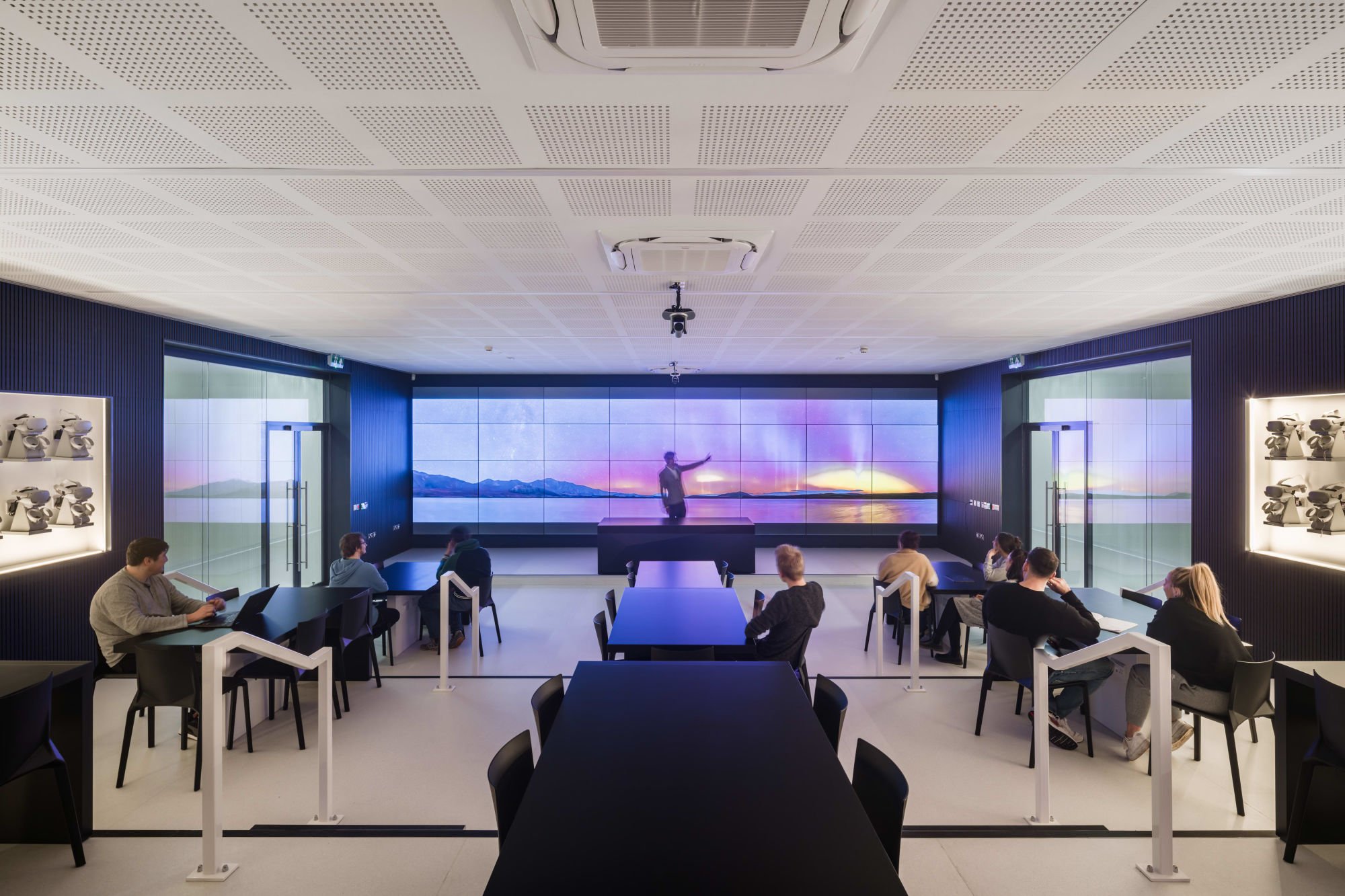
BSc (Hons)
Computing and Digital Technology
Looking for a future in tech? Our BSc (Hons) Computing and Digital Technology degree is designed to equip you with the skills to thrive in the tech indutry.
From developing apps and systems across platforms (desktop, mobile, IoT and the Cloud) to mastering programming languages like C#, C++, Java, and Python, and development tools such as Visual Studio, Android Studio and XCode, you’ll build the expertise industry demands.
Plus, our cutting-edge Immersive XR Lab lets you explore virtual, augmented, and mixed reality with the latest tech like VR headsets and motion devices, setting you up for an innovative career!
Learning Environment
At University Studies at West Suffolk College, we pride ourselves on smaller class sizes and a higher-than-average ratio of lecturers to students. This creates a calm setting where you can focus on your learning and thrive under our mentorship, and an environment where everyone encourages and uplifts one another.
By studying with US, you will be able to take full advantage of our state-of-the-art XR Lab, which provides virtual, augmented and mixed reality technology including headsets, haptics, biometrics, and motion devices to enable you to explore cutting edge technology:
Career Prospects
With US, you’ll graduate ready for a career in the tech industry. Example careers can include:
Cyber security analyst
IT trainer
Data analyst
Network engineer
Games developer
Web developer
Software engineer
Systems analyst
Key Information
Applications
Applications are open now for September 2025 entry via UCAS. If you require any assistance, please visit us at an Open Day or contact universitystudiesadmissions@easterneducationgroup.ac.uk.
Usual Entry Requirements
UCAS Tariff: 96 points
A Level: CCC
Pearson BTEC L3 National Ext. Diploma: MMM
Please note, 120 credits must be achieved in order to progress to year two of your degree and a further 120 (totalling 240) credits must be achieved to progress to year three.
Applicants who do not meet the published entry requirements will be considered on an individual basis based upon prior learning and relevant experience. See more information and exclusions here*
Typical Module Diet
-
Coding, Prototyping and Internet of Things
Projects, Testing and Performance
Web Development
Mobile and Smart Device Experiences
Interaction and User Experience Design
Principles of Computing
-
Multiuser Experiences
Research Skills and Industry Engagement
High-Level Programming for Experiences
Smart Systems Development
Computer Systems and Networking
Database Systems
-
Final Project
Reality, Immersion and Innovation
Middleware, Tools and APIs
Interactive Visualisation and AI
Cybersecurity
Assessment Methods
A wide variety of assessment methods are used on the course, including the creation of mobile apps, desktop applications, interactive experiences, prototypes, and IoT devices, depending on the options taken.
In addition, assessments such as reports, portfolios, presentations, and exhibitions will enable you to present your ideas and demonstrate understanding of concepts.
Period of Study
Full-time: 3 Years
The University Studies at WSC Admissions Policy contains information on our English Language requirements. Terms and Conditions can be found here.
Fees
-
£8,500 per year full-time. Click for information on securing student finance.
Details of any incidental costs related on this course can be found on the course factsheet.
-
While not strictly essential, as access to teaching and research lab facilities are often available outside of timetable sessions for each module, it is advisable to purchase a personal computer. The specifications for this would partly depend on the modules chosen and given the development of technology and changing value of equipment, it is not possible to place an exact cost. The course team and fellow students will be happy to discuss this with you.
Where certain modules are taken, students are advised to purchase a set of headphones to test audio and a gamepad to test input within their solutions. Other modules may require low-cost electronic prototyping equipment and components if you wish to experiment at home.
Other costs may include books if you wish to have your own copies averaging around £100 - £200 per year as well as visits to exhibitions/events; paper-based materials; and printing (although most work is submitted electronically).
Campus
Study will be delivered at the University and Professional Development Centre in Bury St Edmunds.
Awarding Body





